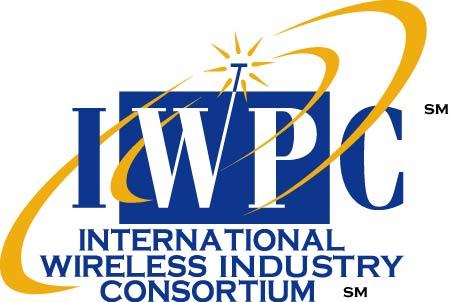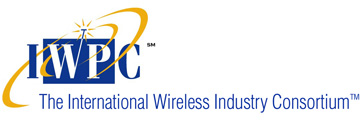Evolving Transport Networks for 5G
Considering self-backhauling: Integrated access and backhaul links, XRAN/ORAN fronthaul, fiber densification, time sensitive Ethernet, Passive Optical Networks (PON) and mmWave 100-400 GBps wireless innovation
Hosted by:
SOLD OUT
When
May 14-16, 2019
Introduction
Will transport networks be the bottleneck for future 5G networks? Fiber is the go-to choice for next generation 5G transport networks, but what are the technical and economic barriers to success and how can wireless systems augment fiber to deliver seamless and ubiquitous connectivity. This workshop will consider all aspects of RAN and transport architectural choices and explore technology breakthroughs and innovation necessary to meet service providers demands
Workshop Goals
- Explore transport evolution strategies from 4G to 5G
- Understand 5G fronthaul & backhaul network architecture/deployment opportunities and challenges
- Assess capacity requirements, planned speed of deployment and expected rate of adoption
- Understand future transport requirements of the network and opportunities for Integrated Access and Backhaul (IAB)
- Assess RAN split options and delay requirements
Agenda
|
DAY 1 Tuesday 7:00 PM |
Evening Reception & Registration |
At Hotel |
|
DAY 2 Wednesday 7:00 AM |
Breakfast |
|
|
8:00 AM |
Welcome and Introductions
|
 |
|
9:00 AM |
Host Introduction and Keynote
|
Keynote Presentation
DMTS & Fellow
|
|
10:00 AM |
Networking Break |
|
|
10:40 AM |
Carrier Perspectives
|
Enabling a National 5G Network Launch, BT UK Case Study
Principal Network Architect
|
|
12:00 Noon |
Networking Lunch |
|
|
1:00 PM |
Transport Systems
|
The Evolution to a Unified Layer 2 RAN Transport Architecture
Solution Architect
Opening Up the Access Network for 5G
VP and GM, Software and Services
Essential Aspects of Adaptive Transport Networks
Senior Architect, Mobility Solutions & Standards
|
|
3:00 PM |
Networking Break |
|
|
3:40 PM |
Transport Systems, continued
|
Segment Routing for the Next Gen-Transport Network
Director, Wireless/IP Core
Smart xHaul 4G/5G Transport Solutions
Principal Solutions Architect
|
|
5:00 PM |
End-of-Day Panel |
|
|
5:40 PM |
Adjourn |
|
|
7:00 PM |
Networking Dinner at Lucia Ristorante |
Bus departs Lobby promptly at 6:15pm |
|
DAY 3 May 16 Thursday 7:00 AM |
Breakfast |
|
8:00 AM |
Open Source Transformation towards 5G?
|
Impacts of oRAN on Fronthaul Transport
Sr. Systems Staff Engineer
|
8:30 AM |
Wireless Transport Systems
|
Microwave and Millimeter-Wave Spectrum for 5G Wireless Transport
Vice Chair, ISG mWT
5G Wireless Transport Solution
Chief Engineer
IAB and High Capacity MW – Complementing Technologies to rollout 5G
Senior Researcher
|
|
10:00 AM |
Networking Break |
|
10:30 AM |
Wireless Transport Systems, continued
|
Hardening Mobile Backhaul Networks to Support 5G
Senior Director, Strategy
Practical Challenges for Fronthaul/Midhaul Deployment
General Manager
Dual Band Microwave Antenna Technology, Construction and Deployment
Director, PLM, Mobility Solutions RF Products
|
|
12:00 Noon |
Networking Lunch |
|
|
1:00 PM |
Technology Enablers, continued
|
TSN Switches, Orchestration and Requirements for Fronthaul
VP, Sales & Marketing
Converged Networks for 5G RAN and Broadband Services
Principal Architect
Advanced GaAs Technologies for mmWave RAN and Wireless Backhaul
SVP, Technology
|
|
3:00 PM |
Networking Break |
|
|
3:30 PM |
Technology Enablers, continued
|
4G/5G High Speed Cellular Backhaul over Satellite – a Technology Leap Frog!
Director, North America
Assessing eCPRI/RoE
Senior Product Marketing Manager-Field Test Solutions
|
|
5:00 PM |
Closing Discussion |
|
6:00 PM |
Adjourn |
FAQs
- What is the deadline for presentation/handout materials?
- What can I do to prepare for speaking an at IWPC workshop?
- Who are the attendees?
- What are the costs/registrations fees?
- Hotel information?
- What are the travel options from the airport to the hotel?
- Are there any audiovisual requirements?
- Will business cards be collected?
- What is the dress code?
- How will handout materials be provided?
- What is the deadline for
presentation/handout materials?
Deadline for electronic version of presentation/handout materials: Monday, May 6, 2019
- What can I do to prepare for speaking an at IWPC workshop?
Click on the link below for a short video guide regarding preparing for and improving your IWPC presentation:
- Who are the attendees?
- We do not permit the Press.
- We do not permit Analysts.
- We do not permit Consultants.
- We do not permit 3rd party sales reps.
- We only permit "first hand knowledge experts" in business and technology issues, prepared to contribute to the discussion.
- What are the costs/registrations fees?
ALL Hosts, Speakers, Panel Members and Attendees will be asked to cover out-of-pocket workshop costs such as conference room costs, food (Social Reception plus First Day breakfast/lunch/dinner plus Second Day breakfast/lunch plus Breaks), audio/visual costs, etc.
These costs will be $1099 (USD) per person. (For IWPC Members only.)
ALL Hosts, Speakers, Panel Members and Attendees will be asked to pay this fee in advance with either Visa, MasterCard, American Express, cash, personal check or business check. Make checks payable to IWPC.
- Hotel information?
Hilton Boston / Woburn
2 Forbes Rd
Woburn, MA USA 01801
Phone: +1 (781) 932-0999
Hotel WebsiteThe IWPC room block rate is $169/night. The deadline for hotel reservations is Friday, April 26, 2019. After that date, rooms cannot be guaranteed at the IWPC rate. You can make your reservations at Book your group rate for IWPC Boston 2019.
- What are the travel options from the airport to the hotel?
- Are there any audiovisual requirements?
A Computer Projector will be available for the speakers.
In addition, we audiotape all presentations and the interactive discussions. Post workshop, presentations are made available to IWPC Members on the IWPC WEB site, along with “recordings” of all presentations and panel sessions.
- Will business cards be collected?
Business cards will be collected at the door from all attendees. We will make copies of these cards, which will be available to all who provided a business card.
- What is the dress code?
Business casual suggested. No ties, please!
- How will handout materials be provided?
For ALL IWPC members:
All IWPC members are invited to submit materials to be included in the online workshop folder in the IWPC Research Library. This should NOT BE SALES MATERIALS. Rather, we suggest it contain technical information about your technology as it relates to the workshop topics.
For all companies who will be making a presentation at the Workshop:
You are invited to submit an advance copy of your presentation, complete with graphics and illustrations.
These materials will be included on the IWPC website Research Library.
Please submit these materials either by email, as a Word for Windows file, Power Point files or PDF files.
- Go to www.iwpc.org
- Click on IWPC Activities Tab
- Under Workshop: Evolving Transport Networks for 5G
- Click on Submit Presentation Proposal. Complete the form and attach your presentation.
- Once we receive your presentation we will send an email confirmation.
AS BACKUP, PLEASE BRING AN ELECTRONIC COPY USB STICK WITH YOU!






.jpg)






